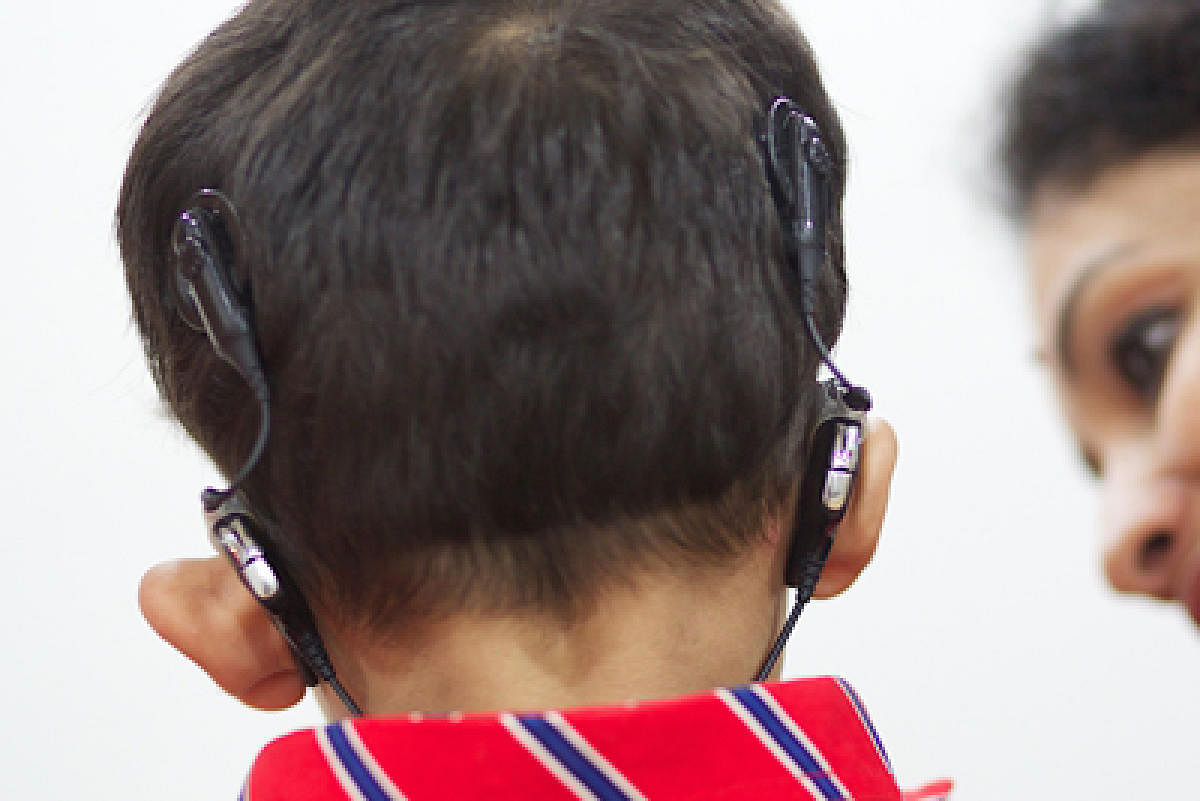
Twenty children have been cleared for surgery under the government’s free cochlear implant surgery scheme, according to the Health Department. Chief Minister Basavaraj Bommai announced free surgeries for 500 children under the age of six in this year’s budget.
The Centre, which previously funded the programme under its Rashtriya Bal Swasthya Karyakram (RBSK) scheme, had stopped it in 2018 on grounds of scheme duplication. A total of 1,300 hearing-impaired children have been identified under the state scheme, of whom 676 are currently being tracked for the surgery, says Dr Chandrika B R, Deputy Director of the Health and Family Welfare Department, who heads the programme. The approval process for the surgery is lengthy.
The procedure
First, ASHAs, RBSK units or district-level audiologists will identify children with deafness at screening camps or government facilities, and create a line list. Then, the children will undergo ‘trial therapy’, which includes confirming that they won’t benefit from hearing aid, checking if they can adapt to devices, and evaluating their voice. “This process takes about six months. Then there will be further investigations, such as scans and paediatric examinations, for three to four months. After this, the District Cochlear Committee, and then the State Cochlear Committee have to approve the beneficiary list,” says Dr Chandrika.
In addition to the 20 children approved for the surgery so far, 198 have finished the trial therapy and are undergoing investigations now. Another 280 are currently undergoing trial therapy, says Dr Chandrika.
However, the tenders for the implant devices are yet to be finalised. The tenders call for US FDA-approved devices. The last date for receiving bids is October 25, and the technical bids will be opened on October 27, as per the tender documents.
State Health Commissioner D Randeep says they may get the devices from the selected vendor around mid-November. He says the department may complete around 300 surgeries by March, and the rest afterwards. “Since the remaining children will be under various stages of investigation then, we presume the funds earmarked for them will be available in the next financial year also,” says Randeep.
As per a document from the State Health Department in August, the total cost approved for each surgery is Rs 6.17 lakh. This also includes the cost of a year-long Auditory Verbal Therapy (AVT), comprising 104 sessions that the children need to undergo post-surgery. “The idea is that these children can go to regular school and learn alongside other children,” says Dr Chandrika.
While only a couple of Bengaluru government hospitals used to perform the surgery earlier, now the department has empanelled 20 hospitals including private ones. Aster RV, Vydehi Medical College and Apollo Hospitals are among the private empanelled facilities now. Hospitals in other districts, such as KIMS Hubballi and Mandya Medical College are also among the empanelled ones.
Dr Chandrika says districts such as Shivamogga, Davanagere, Raichur, Bengaluru Urban and Mysuru have a high number of beneficiaries. In cities, many of the beneficiaries are slum dwellers. She says challenge is convincing parents to agree to the surgery, especially in the case of girl children.
“A part of the implant will be visible on the child’s scalp. So, many parents, especially fathers, refuse to avail of the surgery for their girl children due to stigma.” This year, the department has also completed 52 out of 67 surgeries of SC/ST children who had been selected in 2019-20 under a separate scheme, says Dr Chandrika.